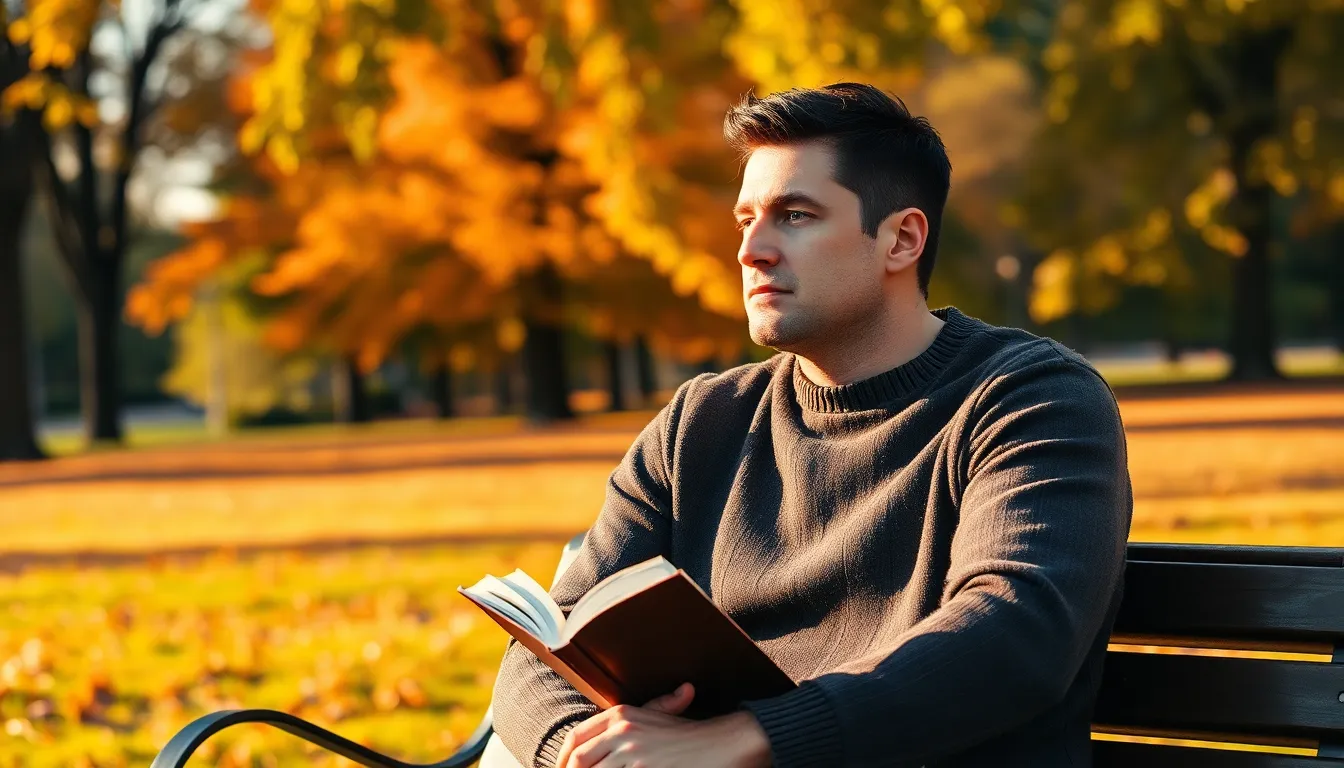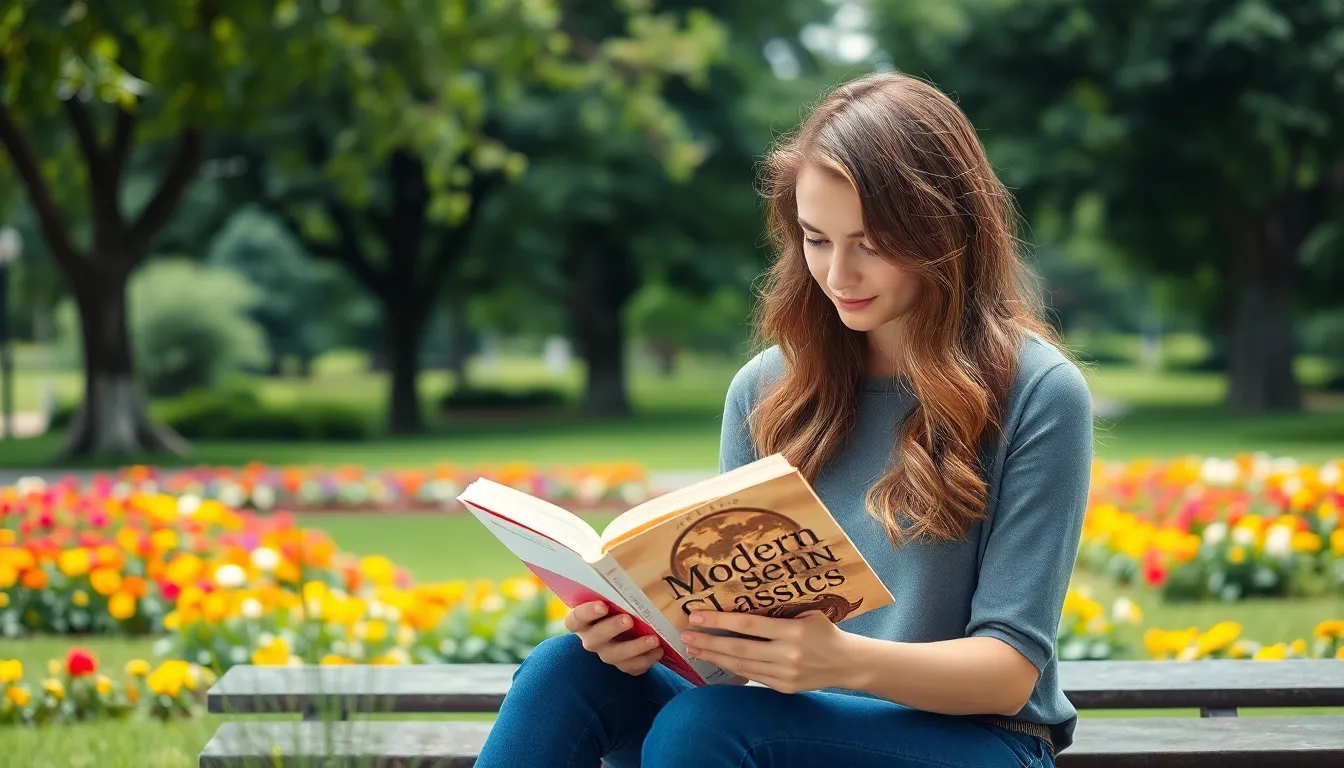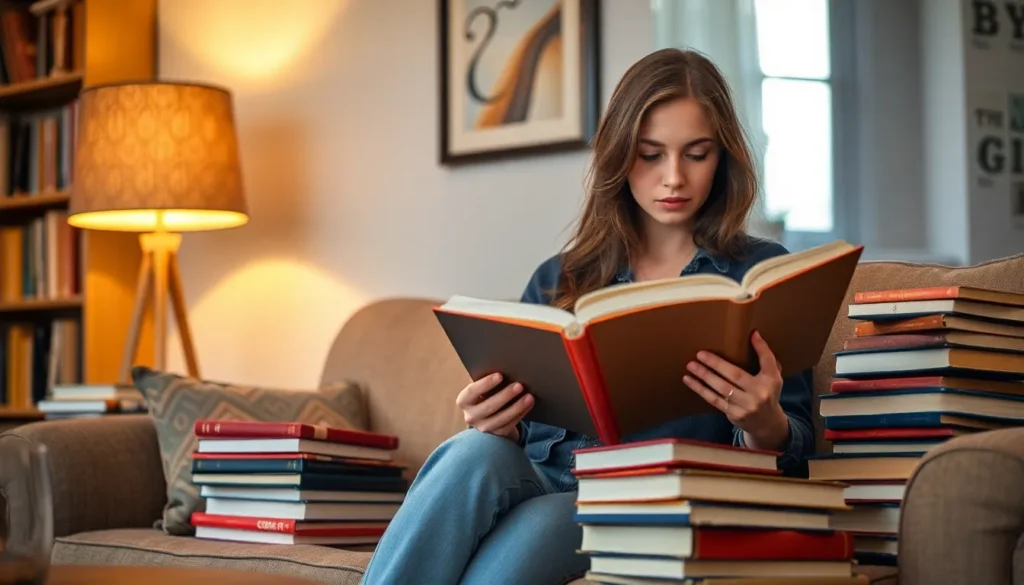Table of Contents
ToggleIn a world overflowing with trends that come and go faster than a cat video can go viral, modern classics stand the test of time. These gems, often overlooked, blend contemporary flair with the essence of timeless storytelling. They’re like that favorite pair of jeans—comfortable, stylish, and always in season.
Imagine diving into a book or film that captures the chaos and charm of today while echoing the wisdom of yesteryear. Modern classics invite readers and viewers to indulge in narratives that resonate deeply, sparking conversations and inspiring creativity. So grab your popcorn or a cozy blanket, and let’s explore why these modern masterpieces deserve a spot on your must-read or must-watch list. After all, who wouldn’t want to impress their friends with a little literary or cinematic brilliance?
What Are Modern Classics?
Modern classics represent a unique intersection between contemporary themes and enduring storytelling. These works resonate with audiences through their relatable characters and relevant issues. Many people appreciate how modern classics reflect current societal values while maintaining timeless narratives.
The term “modern classics” typically refers to literature and films created in the 20th and 21st centuries, influential for their innovation and impact. These pieces often challenge conventional norms, sparking thought and discussion among viewers and readers. Notable examples include works like “The Road” by Cormac McCarthy and “Eternal Sunshine of the Spotless Mind,” celebrated for their emotional depth and narrative experimentation.
Critical acclaim often accompanies modern classics, solidifying their place in cultural discussions. Critics and scholars recognize them for their artistic merit, exploring complex themes that resonate with audiences today. Themes of identity, society, and technology frequently emerge, making these pieces relevant across generations.
Moreover, modern classics frequently inspire adaptations and reinterpretations in various media. Contemporary filmmakers and authors draw on these works to create new versions that appeal to modern sensibilities. The cycle of inspiration ensures that modern classics remain part of cultural conversations.
Ultimately, modern classics are essential for understanding the evolution of storytelling. They provide insights into contemporary life while highlighting universal experiences. Readers and viewers can enrich their understanding of current culture by engaging with these significant works.
Characteristics of Modern Classics


Modern classics embody distinct features that cement their significance in literature and film. These works reflect contemporary values while addressing timeless themes.
Timeless Themes
Universal themes often permeate modern classics, resonating profoundly with audiences. Concepts like love, loss, identity, and resilience appear consistently, resonating across different contexts. “The Road” by Cormac McCarthy explores survival amid desolation, evoking deep emotional engagement. Similarly, “Eternal Sunshine of the Spotless Mind” examines memory and relationships through a unique lens, captivating viewers. These themes remain relevant, enabling audiences to connect with the narratives on a personal level. Effective storytelling intertwines these motifs, preserving their relevance for generations.
Influential Styles
Modern classics frequently showcase innovative styles that challenge narrative conventions. Narrative experimentation plays a crucial role, as seen in non-linear storytelling and unique character perspectives. Filmmaking techniques also evolve; directors use visual artistry to enhance emotional depth. Authors often employ concise prose and vivid imagery, enabling readers to immerse themselves fully. Such stylistic elements encourage creative exploration and push boundaries. These influential styles contribute significantly to cultural conversations, ensuring that modern classics maintain their place in contemporary discussions.
Notable Authors and Their Works
Modern classics feature contributions from influential authors who shape contemporary literature and cinema.
Author 1: Key Contributions
Cormac McCarthy stands out for his profound narratives and stark prose. “The Road” exemplifies his ability to explore themes of survival, love, and despair in a post-apocalyptic world. Readers encounter a father-son relationship that resonates deeply, showcasing vulnerability amidst bleak circumstances. Critics praise McCarthy’s minimalist style, enhancing emotional weight through sparse dialogue and vivid imagery. “No Country for Old Men” further reinforces his mastery, combining philosophical themes with gripping action. Through these works, McCarthy challenges traditional storytelling, encouraging readers to reflect on human nature.
Author 2: Key Contributions
Charlie Kaufman is renowned for his unique approach to screenwriting and filmmaking. “Eternal Sunshine of the Spotless Mind” captures the complexity of memory and love, blending science fiction with romance. His narrative innovation shines through the use of non-linear storytelling and imaginative visuals, inviting audiences to rethink relationships. Kaufman’s exploration of identity often defies conventional structure, as seen in “Synecdoche, New York.” His works prompt viewers to engage with philosophical questions, showcasing the power of cinema to evoke emotional depth and introspection.
Impact on Literature and Culture
Modern classics significantly shape contemporary literature and culture. These works not only reflect current societal issues but also challenge readers’ perspectives. Often addressing universal themes like love, identity, and resilience, they create deep emotional connections with audiences.
Innovative storytelling techniques further enhance their impact. Non-linear narratives and unique character viewpoints distinguish these works. For instance, Cormac McCarthy’s “The Road” explores survival through a stark, immersive style. Similarly, Charlie Kaufman’s “Eternal Sunshine of the Spotless Mind” engages with complex emotions through its experimental narrative structure.
Cultural discussions frequently center on the adaptations and reinterpretations of modern classics. Their influence extends beyond the page and screen, inspiring new works in various media. Filmmakers and authors draw from these narratives, prompting fresh interpretations that resonate with modern viewers and readers.
Critical acclaim often accompanies these classics, solidifying their place in cultural conversations. Reviews consistently highlight their innovative approaches, and discussions surrounding these works encompass both academic circles and popular culture. Engaging with modern classics enriches one’s understanding of ongoing cultural dialogues.
Their significance lies not only in storytelling but also in their ability to provoke thought and discussion. Readers and viewers frequently find themselves reassessing personal beliefs and societal norms through these narratives. Modern classics challenge conventions, illustrating the power of literature and film to reflect and shape culture.




